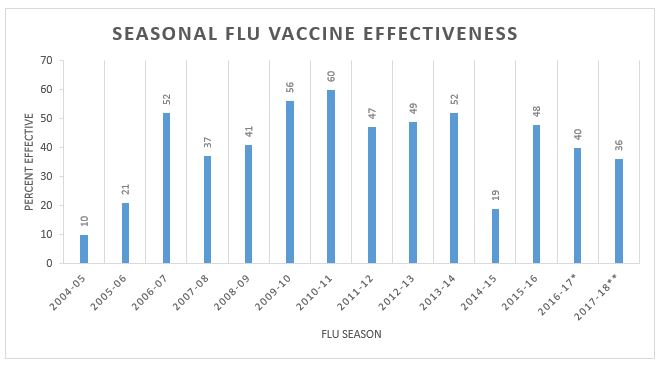Dr. Hany Atallah of Grady Memorial Hospital saw a patient Monday who had flu symptoms.
This possible flu sufferer — who also happened to be a Grady employee — showed that the disease can still appear, weeks after it reached its peak.
Still, for Atallah, Grady’s chief of emergency medicine, the encounter appeared as a sort of bookend to the ferocity of a flu season that claimed 145 lives in Georgia.

The worst is over, Georgia public health officials say. But the important legacy, they say, is that this season may serve as an alert to the general public on how unpredictable and deadly the flu can be.
“This flu season was an important wake-up call to the population at large,’’ Dr. Patrick O’Neal, Department of Public Health commissioner, told GHN this week.
Flu cases here have now dropped to a minimal number. The latest state data showed one hospitalization due to influenza infection in metro Atlanta during the week of April 15 to April 21, after more than 3,000 hospitalizations in the area so far this season.
During the brunt of the season, Grady ran a temporary mobile ER to handle an overflow from its regular emergency department.
The unit was open for two and a half months, Atallah said, handling patients mostly with flu and viral infections.

On five days over this flu season, the emergency staff at Grady had more than 500 patients. But Atallah added, “Every hospital felt it,” not just Grady.
“Every hospital has this understanding that things are busier in wintertime,’’ Atallah said. But a surge in flu cases made the winter of 2017-2018 one to remember. “It was more than everyone had expected,’’ he said.
Across the state, hospitals changed visiting hours during flu season and provided additional staff to protect patients at greatest risk of the flu.
Why was this season so bad?
The dominant flu strain this season, H3N2, typically leads to more illnesses and deaths, with older adults especially vulnerable. H3N2 is a harder target for vaccines than other strains. And this year’s vaccines were just 36 percent effective overall (though they were 59 percent effective in children), according to preliminary data.
“The vaccine was not a great match,’’ Atallah said.

(Public health officials note, however, that getting a flu shot can make your illness milder if you do get sick. And getting vaccinated yourself also protects people around you, including those who are more vulnerable to serious flu illness, such as young children, older people, and people with certain chronic health conditions.)
Nationally, low levels of “flu-like illness” are still popping up in a few spots, according to the latest report from the Atlanta-based CDC, USA Today reported this week.
“We never officially declare flu season over … there’s always flu circulating, even in the summer,” said Lynnette Brammer, head of domestic influenza surveillance at CDC, according to USA Today. But she said the flu has done most of its damage — for now.

The CDC has previously estimated that a severe season can kill up to 56,000 people, hospitalize up to 710,000 and sicken up to 35 million. This season “may have been worse than that,” Brammer said, USA Today reported.
CDC says that between last fall and this spring, the flu killed at least 160 children, making this the deadliest flu season for children since at least 2012-13, when 171 died.
In Georgia, close to 70 percent of the flu deaths occurred in the elderly, said O’Neal. No region of the state had an especially unusual number, he said. Out of the 145 fatalities, four were pediatric cases.
“This was the worst season I have ever seen in Georgia, and I have been doing this for 20 years,” said Cherie Drenzek, the state epidemiologist at Public Health, according to the AJC.
The cold temperatures that worsened the flu situation even led to cases of frostbite among the homeless, Atallah said.
Despite the influx of patients, Atallah said, Grady medical staff “stepped up’’ in meeting the demand. “We had extra shifts,’’ he said, “and people worked those shifts.’’

During the flu season, communication to the public is key, public health officials emphasized.
“You cannot take the flu for granted,’’ O’Neal said. “What I fear happened is that it may be the public doesn’t pay that much attention to [flu outbreaks] anymore.”
This season’s high death toll may have gotten the public’s attention, he said.
Both O’Neal and Atallah expressed hope in the development of a “universal’’ flu vaccine that would work against different strains for multiple years.
On Friday, Microsoft founder Bill Gates said the Bill and Melinda Gates Foundation and a fund from the family of Google co-founder Larry Page were pledging $12 million in seed money to spur innovative thinking on a vaccine that would protect against a range of flu viruses for years.

